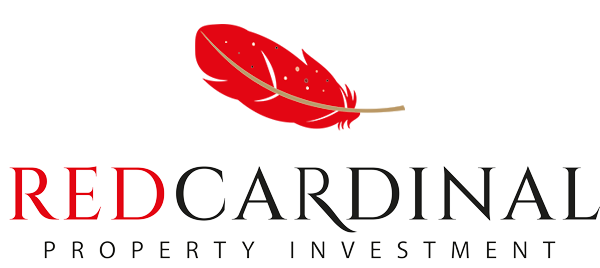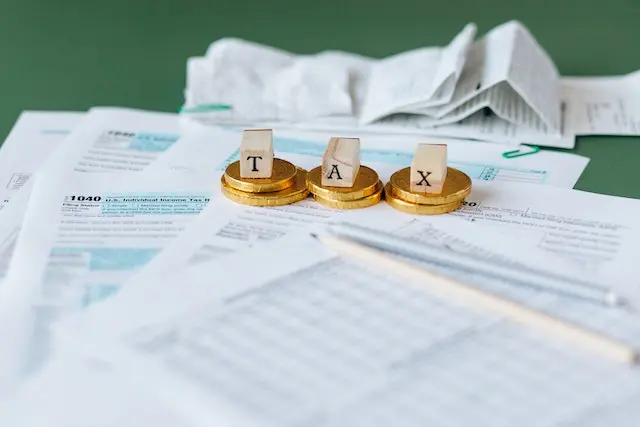A self-managed pension, or self-invested personal pension (SIPP), provides individuals with greater control over their retirement savings. It allows them to choose the assets in which they invest, including the option of pension property investment benefits. Property investment within a self-managed pension presents a compelling opportunity for long-term financial growth and stability. By investing in property, individuals can harness the potential benefits of rental income, capital appreciation, and protection against inflation. Property investments within a self-managed pension offer diversification, the potential for steady long-term growth, and the ability to generate passive income for retirement. This strategy allows individuals to maximize the returns on their pension investments while taking advantage of the stability and growth potential of the property market. With the flexibility and control offered by a self-managed pension, individuals can explore the benefits of property investment as part of their retirement planning strategy.
Exploring the World of Property Investment
Property investment involves acquiring properties with the aim of generating income or capital appreciation. It is a tangible and potentially lucrative asset class. Property investments can include residential or commercial properties, such as apartments, houses, offices, or retail spaces. In the UK, the property market has historically shown resilience and consistent growth, making it an attractive investment option.
Importance of Considering Property Investment within a Self-Managed Pension
Investing in property within a self-managed pension brings several advantages that can enhance one’s retirement portfolio. It offers diversification, protecting against market volatility and reducing risk. Additionally, property investments have the potential for long-term capital appreciation, as property values tend to increase over time. The rental income generated from investment properties can provide a steady cash flow during retirement, ensuring financial stability.
Diversification
By including property investments in a self-managed pension, individuals can diversify their retirement portfolio. Diversification spreads risk across different asset classes, reducing vulnerability to market fluctuations. Property investments often have a low correlation with other assets, such as stocks or bonds, offering a cushion against volatile market conditions.
Long-term Capital Appreciation
The property market in the UK has historically demonstrated long-term growth. Moreover, property values tend to appreciate over time, providing the potential for substantial capital gains. Investing in property within a self-managed pension allows individuals to harness this growth for their retirement savings, building wealth steadily over the years.
Regular Rental Income from Pension Property Investments
Property investment can generate a consistent rental income, making it an attractive option for retirement planning. Rental yields from investment properties often outperform other investment options, such as bonds or savings accounts. This passive income can significantly supplement retirement funds, ensuring a stable financial future.
The Benefits of Property Investment
Investing in property can offer a range of advantages for individuals seeking to grow their wealth and secure a stable financial future. Property investments provide diversification, long-term capital appreciation, regular rental income, and serve as an effective hedge against inflation.
Diversification Benefits of Pension Property Investment
Diversification is crucial for reducing risk and protecting investments from market volatility. Property investment allows individuals to diversify their portfolio by adding tangible assets to their holdings. By spreading investments across different asset classes, such as stocks, bonds, and property, the impact of market fluctuations can be minimized. This diversification helps safeguard against financial losses and provides stability to a retirement portfolio.
Long-term Capital Appreciation
Property values have historically shown steady growth over the long term. Investing in property provides individuals with the potential for substantial capital appreciation. As demand for property continues to rise, especially in desirable locations, property values tend to increase. Moreover, this appreciation in value over time allows investors to build wealth and potentially achieve significant returns on their initial investment.
Regular Rental Income
One of the key benefits of property investment is the opportunity to generate regular rental income. By acquiring properties and renting them out, investors can secure a consistent cash flow stream. Rental income serves as a reliable source of passive income during retirement, helping individuals maintain their standard of living without relying solely on other retirement funds. Compared to other investment options, such as bonds or savings accounts, property investments often offer higher rental yields, maximizing income potential.
Inflation Hedge
Inflation erodes the purchasing power of money over time. Property investments serve as an effective hedge against inflation due to their ability to outpace rising prices. As inflation occurs, property values and rental incomes tend to increase, ensuring that the investment retains its value and protects against the impact of inflation. Property owners can benefit from capital appreciation and rental income that keep pace with or even surpass inflation, preserving their purchasing power in the long run.
The Tax Advantages of Property Investment within a Self-Managed Pension
Investing in property within a self-managed pension not only provides financial growth opportunities but also offers various tax advantages. Understanding the tax benefits associated with property investments can significantly enhance the returns and overall profitability of pension investments.
Rental Income Taxation in Pension Property Investments
When generating rental income from investment properties, there are tax deductions available for property expenses. These deductions can include costs related to property maintenance, repairs, property management fees, and mortgage interest payments. By deducting these expenses from rental income, individuals can lower their taxable rental income, reducing their overall tax liability.
Furthermore, investing in property within a self-managed pension can provide additional tax advantages. Rental income generated within a pension structure may be subject to lower tax rates or qualify for special tax treatments, resulting in potentially higher net returns for investors.
Capital Gains Tax (CGT)
Capital Gains Tax (CGT) is a tax imposed on the profit earned from the sale of an investment property. However, when the property is held within a pension, there are notable tax benefits. Pension investments are typically exempt from CGT, meaning any capital gains realized upon the sale of the property are tax-free. As a result, this exemption can lead to significant savings, allowing individuals to retain a larger portion of their investment gains.
Stamp Duty Land Tax (SDLT) and its Impact on Pension Property Investment
Stamp Duty Land Tax (SDLT) is a tax levied on property purchases. However, investing in property within a self-managed pension may qualify for exemptions or reduced rates. These exemptions or reductions can significantly minimize the costs associated with acquiring properties, making property investments within a pension more financially viable.
By taking advantage of the tax benefits related to rental income taxation, capital gains tax exemptions, and potential reductions in stamp duty land tax, individuals can optimize their property investments within a self-managed pension. These tax advantages contribute to increased investment returns, improved cash flow, and overall financial efficiency.
Control and Flexibility in Property Investment with a Self-Managed Pension
Investing in property within a self-managed pension provides individuals with a high level of control and flexibility over their investments. This level of autonomy allows investors to make informed decisions, customize their investment portfolios, and leverage personal expertise for property improvement and management.
Decision-making Autonomy in Pension Property Investments
Investing in property within a self-managed pension grants individuals the freedom to make crucial investment decisions. This includes the ability to choose investment properties that align with their investment goals and risk tolerance. Unlike traditional pension schemes, where investment choices are limited, self-managed pensions provide the autonomy to select properties that suit individual preferences and investment strategies.
Investment Portfolio Customization
With a self-managed pension, investors have the flexibility to customize their property investment portfolio. This customization extends to diversification based on personal preferences, allowing investors to spread their investments across different types of properties, locations, and rental markets. By diversifying their property portfolio, individuals can reduce risk and optimize returns.
Furthermore, investors can adjust their property portfolio based on market conditions. They can monitor property trends, assess economic factors, and make strategic decisions to capitalize on emerging opportunities or mitigate potential risks. This adaptability ensures that the investment portfolio remains aligned with market dynamics, optimizing investment performance.
Potential for Property Improvement in Pension Property Investments
Investing in property within a self-managed pension also opens the door to property improvement opportunities. Investors can utilize their personal skills and expertise to upgrade properties, thereby increasing their value and rental income potential. Property improvements may include renovations, refurbishments, or implementing energy-efficient upgrades. By actively managing and enhancing properties, investors can maximize their investment returns and create additional value.
Moreover, leveraging personal skills and expertise in property management allows investors to take a hands-on approach in optimizing property performance. This can involve efficient tenant management, proactive maintenance, and effective rental strategies. By actively engaging in property management, investors can enhance rental income and ensure optimal property utilization.
Downsides and Considerations in Property Investment with a Self-Managed Pension
While property investment within a self-managed pension offers numerous benefits, it is essential to be aware of potential downsides and considerations. Investors must evaluate the risks and responsibilities associated with property investment, the capital-intensive nature of the investment, and the importance of legal and regulatory compliance.
Risk and Responsibility in Pension Property Investment
Investing in property comes with inherent risks, including the possibility of market fluctuations. Property values can fluctuate due to economic conditions, changes in demand, or local market factors. These fluctuations may impact the overall value and returns of the investment.
Additionally, investors assume responsibilities as landlords and property managers. These obligations include tenant management, property maintenance, and adherence to relevant laws and regulations. Failing to fulfill these responsibilities can lead to financial and legal complications.
Capital Intensive Investment
Property investment requires substantial capital, both for initial costs and ongoing expenses. Initial costs include property acquisition, legal fees, stamp duty, and other associated expenses. Ongoing expenses encompass property maintenance, repairs, insurance, property management fees, and potential vacancies. Adequate funds are essential to cover these expenses and ensure the property remains profitable.
Legal and Regulatory Compliance in Pension Property Investment
Property investment necessitates a comprehensive understanding of relevant laws and regulations. For instance, investors must be aware of landlord-tenant laws, property licensing requirements, safety regulations, and other legal obligations. Non-compliance can result in financial penalties, legal disputes, or damage to the investor’s reputation. Seeking professional advice from legal experts or property management services can help ensure compliance and mitigate risks.
Unlocking the Potential of Property Investment in a Self-Managed Pension
In summary, property investment within a self-managed pension presents individuals with a wealth of benefits, from diversification and long-term capital appreciation to regular rental income and protection against inflation. However, careful planning and professional advice are crucial for maximizing these advantages and navigating potential challenges.
Recap of Pension Property Investment Benefits
Investing in property within a self-managed pension allows individuals to diversify their portfolio, benefit from long-term capital appreciation, generate regular rental income, and protect against inflation. It offers control, flexibility, and the potential for property improvement, enabling investors to actively participate in shaping their financial future.
Emphasizing the Importance of Careful Planning and Professional Advice
To optimize property investments within a self-managed pension, careful planning is essential. For example, investors should define their investment goals, assess risk tolerance, and develop a comprehensive strategy. Professional advice from financial advisors, tax experts, and property specialists can provide valuable insights, ensuring well-informed decisions and compliance with legal requirements.
Encouragement to Explore Property Investment as Part of a Self-Managed Pension
Considering the benefits and potential returns, property investment within a self-managed pension is an avenue well worth exploring. It offers individuals greater control over their retirement savings, the potential for long-term wealth accumulation, and the opportunity to generate passive income. By leveraging the advantages of property investment within a self-managed pension, investors can pave the way for a secure and prosperous financial future.
In conclusion, property investment within a self-managed pension offers an array of benefits and opportunities. With careful planning, professional advice, and a proactive approach, individuals can unlock the full potential of property investment as part of their retirement strategy. All in all, by embracing the advantages and navigating the considerations, individuals can position themselves for financial success, achieving their retirement goals and enjoying the rewards of property investment within a self-managed pension.
Explore our current investment opportunities and maximize returns with Red Cardinal’s expertly curated prospects across the country.








